BYD Seal vs Hyundai Inster – Differences & prices compared
Compare performance, boot space, consumption and price in one view.
Find out now: which car is the better choice for you – BYD Seal or Hyundai Inster?
The BYD Seal (Sedan) comes with a Electric engine and Automatic transmission. In comparison, the Hyundai Inster (SUV) features a Electric engine with Automatic transmission.
When it comes to boot capacity, the BYD Seal offers 400 L, while the Hyundai Inster provides 280 L – depending on how much space you need. If you’re looking for more power, decide whether the 530 HP of the BYD Seal or the 115 HP of the Hyundai Inster suits your needs better.
In terms of consumption, the values are 15.40 kWh per 100 km for the BYD Seal, and 14.30 kWh for the Hyundai Inster.
Price-wise, the BYD Seal starts at 40300 £, while the Hyundai Inster is available from 20500 £. Compare all the details and find out which model fits your lifestyle best!
BYD Seal
The BYD Seal represents a sleek fusion of innovative technology and stylish design, setting it apart in the competitive electric vehicle market. With its aerodynamic silhouette and premium interior finishes, the car offers a driving experience that is both comfortable and exhilarating. Enthusiasts are particularly impressed by the seamless integration of advanced features that prioritise safety and convenience.
details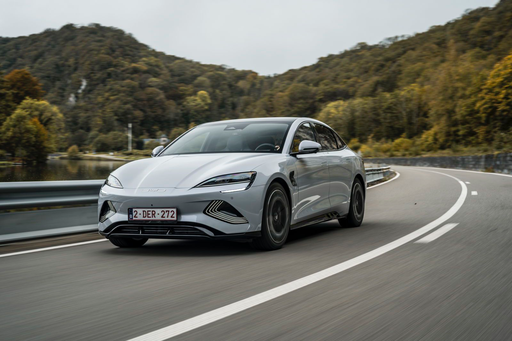 @ press.bydauto.be
@ press.bydauto.be
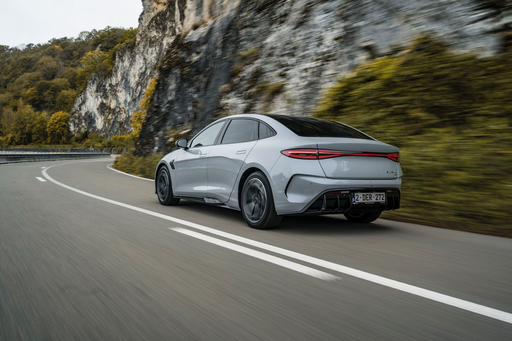 @ press.bydauto.be
@ press.bydauto.be
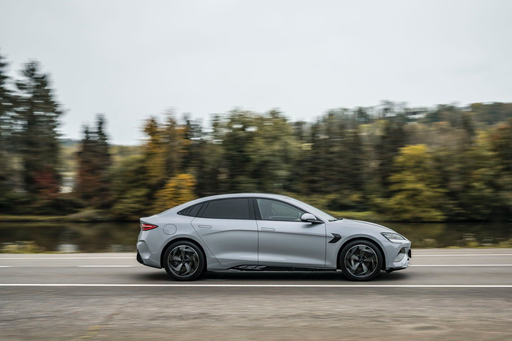 @ press.bydauto.be
@ press.bydauto.be
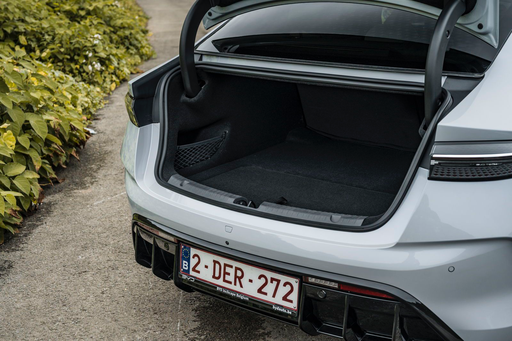 @ press.bydauto.be
@ press.bydauto.be
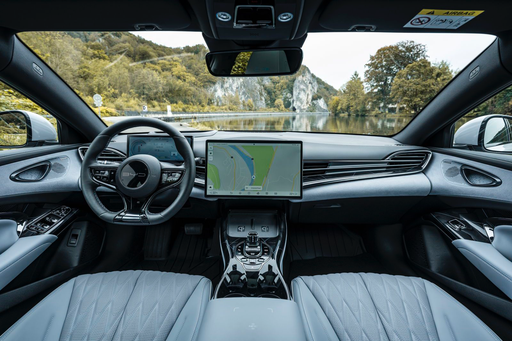 @ press.bydauto.be
@ press.bydauto.be
Hyundai Inster
The Inster has quickly captured the attention of automotive enthusiasts with its striking design and dynamic performance. This model seamlessly blends advanced technology with comfort, making it an ideal choice for both daily commutes and adventurous road trips. With its spacious interior and innovative features, the Inster promises an exhilarating driving experience that doesn’t compromise on practicality.
details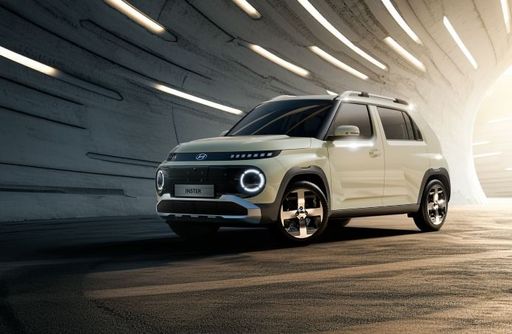 @ hyundai.news
@ hyundai.news
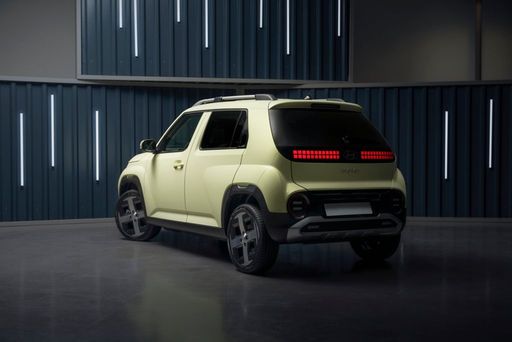 @ hyundai.news
@ hyundai.news
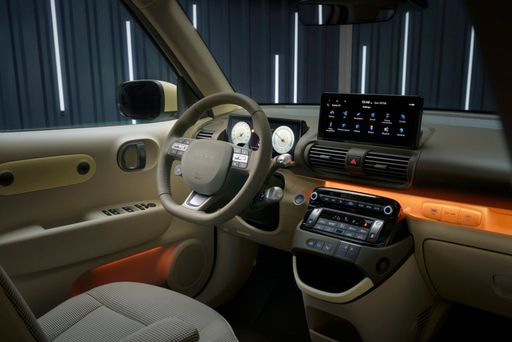 @ hyundai.news
@ hyundai.news

|

|
|
|
|
Costs and Consumption |
|
|---|---|
|
Price
40300 - 43700 £
|
Price
20500 - 25800 £
|
|
Consumption L/100km
-
|
Consumption L/100km
-
|
|
Consumption kWh/100km
15.4 - 18.2 kWh
|
Consumption kWh/100km
14.3 - 15.1 kWh
|
|
Electric Range
460 - 570 km
|
Electric Range
327 - 370 km
|
|
Battery Capacity
-
|
Battery Capacity
42 - 49 kWh
|
|
co2
0 g/km
|
co2
0 g/km
|
|
Fuel tank capacity
-
|
Fuel tank capacity
-
|
Dimensions and Body |
|
|---|---|
|
Body Type
Sedan
|
Body Type
SUV
|
|
Seats
5
|
Seats
4
|
|
Doors
4
|
Doors
5
|
|
Curb weight
1907 - 2185 kg
|
Curb weight
1380 - 1433 kg
|
|
Trunk capacity
400 L
|
Trunk capacity
238 - 280 L
|
|
Length
4800 mm
|
Length
3825 - 3845 mm
|
|
Width
1875 mm
|
Width
1610 mm
|
|
Height
1460 mm
|
Height
1575 - 1610 mm
|
|
Payload
446 - 473 kg
|
Payload
317 - 357 kg
|
Engine and Performance |
|
|---|---|
|
Engine Type
Electric
|
Engine Type
Electric
|
|
Transmission
Automatic
|
Transmission
Automatic
|
|
Transmission Detail
Reduction Gearbox
|
Transmission Detail
Reduction Gearbox
|
|
Drive Type
Rear-Wheel Drive, All-Wheel Drive
|
Drive Type
Front-Wheel Drive
|
|
Power HP
231 - 530 HP
|
Power HP
97 - 115 HP
|
|
Acceleration 0-100km/h
3.8 - 7.5 s
|
Acceleration 0-100km/h
10.6 - 11.7 s
|
|
Max Speed
180 - 220 km/h
|
Max Speed
140 - 150 km/h
|
|
Torque
360 - 670 Nm
|
Torque
147 Nm
|
|
Number of Cylinders
-
|
Number of Cylinders
-
|
|
Power kW
170 - 390 kW
|
Power kW
71 - 85 kW
|
|
Engine capacity
-
|
Engine capacity
-
|
General |
|
|---|---|
|
Model Year
2023 - 2025
|
Model Year
2025
|
|
CO2 Efficiency Class
A
|
CO2 Efficiency Class
A
|
|
Brand
BYD
|
Brand
Hyundai
|
BYD Seal
The BYD Seal: An Electrifying Presence on the Road
Amidst the growing popularity of electric vehicles (EVs), the BYD Seal stands out as a compelling choice. With its sleek saloon design and a plethora of cutting-edge features, this model holds its own in the competitive market of eco-conscious automobiles.
Technical Specs that Speak Volumes
The BYD Seal comes in two key variants, each offering a distinct driving experience yet retaining a common emphasis on performance and efficiency. The power output ranges from a robust 313 PS to an exhilarating 530 PS, ensuring that whether you choose the rear-wheel drive or the all-wheel-drive option, you won't be short of thrills.
Performance enthusiasts will also appreciate the remarkable acceleration capabilities; the Seal can go from 0 to 100 km/h in as little as 3.8 seconds. Complementing its acceleration is its astounding maximum torque, reaching up to 670 Nm, making it adept at handling various driving conditions.
Efficiency Meets Innovation
BYD has engineered the Seal to optimise energy consumption without compromising on performance. The car boasts a commendable energy consumption range of 16.6 - 18.2 kWh/100km, reflecting its efficiency-focused design. Coupled with an impressive electric range of up to 570 km, the Seal is poised for longer journeys without frequent recharging interruptions.
Design and Comfort
The BYD Seal's aesthetic appeal is underscored by its sleek saloon body and precise dimensions: 4800 mm in length, 1875 mm in width, and standing at a height of 1460 mm. These dimensions create a dynamic yet spacious presence on the road, ensuring both an aerodynamic performance and a comfortable interior for up to five passengers.
Inside, the Seal is designed with driver and passenger comfort in mind, featuring a well-crafted interior and advanced technology to enhance the driving experience. The boot offers 400 litres of space, catering to practical needs without compromising on style.
Innovative Features for a Modern Drive
The Seal doesn’t just rely on its electric credentials to make an impact. BYD integrates a host of modern technologies and safety features, ensuring that the driving experience is both innovative and secure. The inclusion of a single-speed reduction gear contributes to a smooth driving experience, enabling efficient transitions in speed.
Safety is further assured with the Seal's high CO2 efficiency rating of class A, underlining its efficacy as a sustainable mode of transport that does not contribute to emissions. Given these progressive features, it's clear that the BYD Seal aligns with the evolving expectations of modern drivers looking for an eco-friendly yet high-performing vehicle.
Conclusion: Future-Ready Efficiency
With a competitive price range starting from €44,990, the BYD Seal represents excellent value for those seeking a blend of performance, efficiency, and modern technology. As sustainable transportation becomes a priority globally, the Seal positions itself as a pioneering force in the electric vehicle market, offering a future-ready driving solution that can meet the needs of today's discerning car buyers.
Hyundai Inster
The automotive landscape continues to evolve, and at the forefront of this transformation is the Hyundai Inster, a dynamic model set to impress electric vehicle enthusiasts. As a compact SUV, the Inster embodies a blend of innovative technology, user-friendly features, and an eco-conscious design, making it a contender in the burgeoning electric vehicle market.
Powertrain and Performance
The Hyundai Inster is powered by an efficient electric drivetrain, offering two main battery options: a 42 kWh and a 49 kWh version. These options translate to power outputs of 97 HP and 115 HP, respectively, allowing drivers to choose based on their performance needs. The Inster accelerates from 0 to 100 km/h in 11.7 seconds for the 42 kWh variant, while the more powerful 49 kWh model reaches the same speed in an impressive 10.6 seconds, showcasing Hyundai's commitment to delivering engaging performance.
Range and Efficiency
One of the standout features of the Inster is its electric range. The 42 kWh model provides a range of 327 km, while the 49 kWh variants extend the range to 360 km and 370 km. This remarkable efficiency is complemented by consumption figures of 14.3 kWh/100 km for the 42 kWh variant and 14.9 kWh/100 km for the 49 kWh options. These figures ensure that the Inster is not only suited for city driving but also capable of handling longer journeys with ease.
Dynamic Design and Comfortable Interior
Aesthetically, the Hyundai Inster boasts a sleek and modern look, featuring a compact SUV profile that is both sporty and practical. The dimensions, measuring between 3825 mm and 3845 mm in length, with a width of 1610 mm and heights ranging from 1575 mm to 1610 mm, contribute to its spacious and comfortable cabin. The interior accommodates up to four passengers, making it an ideal choice for small families or couples.
Innovative Features
The Inster incorporates advanced technology geared towards enhancing the driving experience. Its automatic transmission, utilizing a reduction gearbox, ensures seamless gear shifts. Additionally, drivers will appreciate the array of smart features designed for convenience and connectivity, including advanced infotainment systems and driver assistance technologies.
Sustainability Credentials
Hyundai is dedicated to sustainability, and the Inster is a testament to this philosophy. With a carbon footprint of zero emissions, the Inster falls into the A CO2 efficiency class, making it a responsible choice for eco-conscious consumers. The absence of traditional emissions positions the Inster not only as an economical option but also as a proactive step towards reducing our environmental impact.
Conclusion
The Hyundai Inster stands out as a versatile and innovative solution in the electric vehicle segment. With a balanced approach to performance, efficiency, and sustainability, it caters to the modern driver’s needs and reflects the automotive industry's shift towards electrification. The future looks bright for the Inster, as Hyundai continues to pave the way for greener driving experiences.
The prices and data displayed are estimates based on German list prices and may vary by country. This information is not legally binding.
